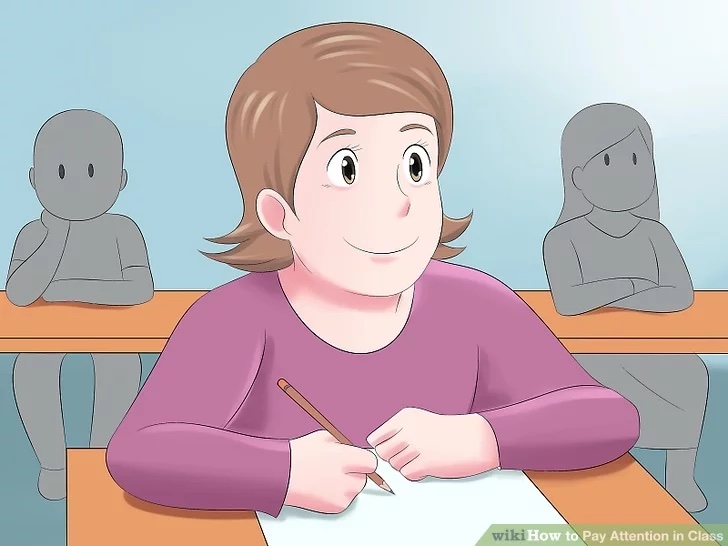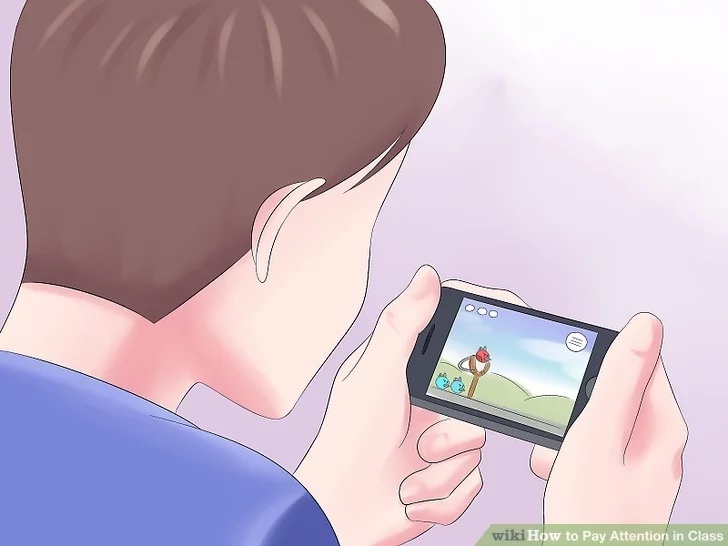
Six Ways To Improve Your Focus At School by Craig Middleton offers tips for students of all ages for paying better attention in class. Please share with any students you know.
Introduction
- You know how important it is to pay attention in class. Your teacher or professor is likely explaining concepts that you cannot grasp just by reading the textbook. Yet it is easy for your mind to wander during a lecture. You may get distracted by your classmates, or you might start thinking ahead to your extracurricular activities.
- If you have your cell phone or laptop nearby, you might start texting or checking social media instead of listening to your class. To survive grade school and college, you must understand how to focus during boring lessons. Learning this skill will also help you concentrate during work meetings as an adult. Here are some tips to help you pay attention during your classes.
1. Eat Right
- Your brain needs certain nutrients to function. If you are not eating properly, then you will struggle to concentrate no matter what else you do. Your diet should include lots of vegetables, healthy whole grains, lean proteins, and some fruit. Limit your caffeine intake, as too much coffee, can make you jittery. You can further maintain the health of your body and mind with supplements from USANA Singapore
2. Prepare Before Class
- As you sit at your desk and wait for class to start, you should get in the right frame of mind for learning. Read your textbook, look over your homework assignment or review your notes from the prior day. This should get your brain into “learning mode.” Similarly, you should spend a minute or two organizing your desk and ensuring you have everything you need. This way, you will not get distracted looking for a pencil or eraser during the lecture.
3. Participate and Take Notes
- Once the class begins, keep your brain engaged by participating in the discussion. This should prevent your mind from wandering. Specifically, asking questions can help you better understand confusing material. Just listening for concepts that you want to be clarified can force you to pay more attention.
- If you are not comfortable speaking in class, you should at least take detailed notes as the teacher speaks. (Doug: Some research indicates that taking notes with pen and paper is better than taking them on a computer. It also allows you to draw graphic organizers.) This should help you better remember the material and connect personally to what the professor says. You can also use the notes to help you study for tests later. There is no one right way to take notes. Instead, find the technique that works best for you. If you learn best from images, use pictures and diagrams to convey certain topics. If you stick to written notes, use color-coded pens or bullet points to organize the information.

4. Stay in the Present
- As mentioned before, your mind can easily wander during a boring lecture. To pay attention in class, you need to stay focused. If you find yourself daydreaming or stressing about your personal life, manually get those thoughts out of your head. Even thinking about future tests or assignments during class can cause you to miss important information from the teacher. To truly absorb the information, you need to keep your undivided attention on the day’s lesson.
5. Remove Distractions
- It is not just random thoughts that can distract you during class. Physical items, particularly electronic devices, can make you lose your focus. The best way to deal with distractions is to physically remove them from your presence. That means keeping your phone or tablet in your bag until class is over. If a window or a chatty classmate is distracting you, try sitting in a different seat. (Doug: I also recommend sitting in front. This way students in front of you can’t distract.)
6. Get Enough Sleep
- It is almost impossible to focus if your brain does not get enough rest. Most people ages 12 and older should get eight to nine hours of sleep per night. Figure out what your ideal sleep schedule is, and stick to it. Avoid getting too much sleep, as this could also make you feel overtired during the day. If you do not focus properly at school, you could end up failing your classes. The above tips should help you concentrate during lectures so you can achieve your academic goals.
Craig Middleton
- Craig is a New York City-based retired business consultant, who is an expert in education and cultural trends. He has a Masters of Business Administration and a Masters in Education from St. Johns and loves sharing his knowledge on the side through his writing. If you have any questions or comments you can direct them to Craig at craigmiddleton18@gmail.com.
DrDougGreen.com If you like the summary, buy the book





